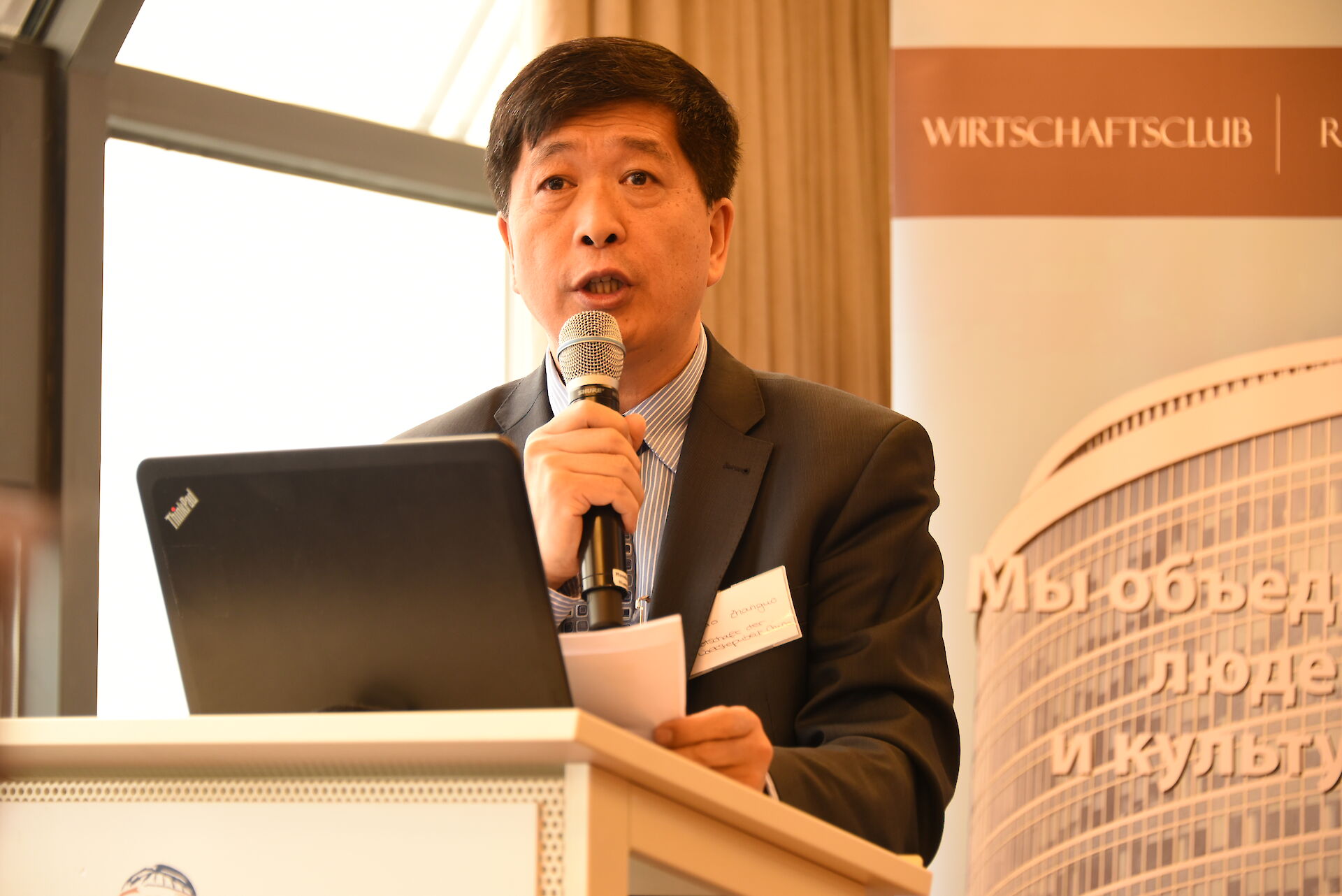10 Apr 2017 15:03
Economy
Hamburg is Germany’s most important seaport for China: With 177 trains weekly, it is rail market leader too.
Some 70 participants took up Port of Hamburg Marketing’s (HHM) invitation and attended ‘Hamburg – Gateway to the New Silk Road’ on 7 April. The joint organizers of the event held at the Hafen Klub were Hamburg Port Authority (HPA) and Netzwerk Business-International.org. “What does Port of Hamburg Marketing have to do with freight transport by rail on the new Silk Road?” asked HHM CEO Axel Mattern tackling the challenge of a rather frequently asked question in his introduction. Before Karin von Bismarck Ph.D, founder of Netzwerk Business-International.org greeted those present, Mattern elaborated: “The port is Europe’s biggest logistics hub and is the leading port for trade with China. Rail plays a decisive role in both incoming and outgoing port logistics. With 2,000 weekly container train services on offer, of which 177 are with China, Hamburg is by far the major player in the market place.”
First Secretary of the Chinese Embassy’s economic department in Berlin, Zhanguo Gao, described Hamburg as a ‘location for innovation and logistics’, which is why he was very pleased to receive the invitation to this event. He sees the Silk Road project positively with the resulting firm partnerships with countries involved, but equally recognizes that a great deal still has to be done. “Naturally the Silk Road project creates issues that have to be dealt with. Those involved can solve them jointly, bringing in their own expertise,” explained Gao. At the end of his speech, he summarized: “In the final analysis, it is a matter of patience and cooperation: only time will tell.”
Uwe Leuschner, Senior Vice President of DB Cargo points out the importance of the Silk Road: “Both in Germany and the whole of the EU, people should recognize that the Silk Road is important. It is now, from this project that we are learning what ‘railway’ really means, states Leuschner. That is the inter-meshing of Chinese and European networks. “It is about networking the World.” In his opinion the world of politics is not sufficiently open for this. Regulations from Brussels, such as limitations on the length of trains, are hindering the process.
According to Carsten Pottharst, Managing Director of InterRail Europe, the challenge for carriers lies in organizing cargo flows. Here he stresses InterRail’s good cooperation with DB Cargo, pointing to a current example: “Our latest product carries containers from China to London. The first train left Yiwu on New Year’s Eve 2016, arriving in the UK seventeen days later.” In view of the smaller volume, rail is not competing with the sea trades says Pottharst, even though rail transport will experience considerable growth. “In the next five years, I see the transport of all types of goods via the Silk Road,” he adds.
Jens Meier, CEO of HPA, welcomed staging an event showcasing the new Silk Road in Hamburg, seeing the port as a Silk Road hub. The political world has to open the way for an increase in efficiency of the rail structure,” according to Meier. “Standardization has to be achieved in all countries, if the Silk Road project is to be successful.” Just as important for Meier is marketing the product. To this end, the G20 Summit in Hamburg in July presents a real opportunity, when Chinese State President Xi Jinping is expected in Hamburg.
On the Chinese side, freight transport on the new Silk Road is currently subsidized. “These state subsidies are also seen critically. It is often presumed that stopping the subsidies would lead to reduced transport offerings,” states Nicolai Noeckler, head of Asia-Pacific at Trans Eurasia Logistics. For the Silk Road, it was the subsidies that made the kick-off possible, with the Chinese State providing the starting signal and sending freight trains on their long journey. Reducing state subsidies would affect the utilization of the trains. Noeckler explains: “The westbound traffic is currently greater than eastbound, with some trains returning partly empty. If we achieve better utilization in both directions, less subsidies will be needed.”
Karin von Bismarck sees the challenge for those involved in all countries in digitalization. “Terminology like ‘Industry 4.0’ pools what is unsettling for many individuals and SMEs. Both the new and the unknown present a simply incalculable factor, confronting those involved with new challenges. It is our job to show which paths exist and where digitalization is leading us. The new Silk Road is opening up opportunities for logistics and European-Asian shipments. Karin von Bismarck is absolutely sure that all players will profit from this. “Since the Silk Road and its corridors will certainly continue to be developed, with or without support from companies, everyone should make the best of it, see their opportunity and profit from it, “ advises the chairwoman of the Russian business club.
The panel discussion, presented by Melanie Graf, owner of ‘charakter PR’, was followed by questions from the audience. During the final get-together there were individual ‘hands on’ discussions with the experts present. “I am pleased with the good level of participation at our event,” stated a satisfied Axel Mattern. “Many worthwhile insights from experts in the field have provided a good overview of the status quo and potential for the new Silk Road. Today, the Port of Hamburg is already really well positioned for freight transport to and from China by both sea and overland.”

